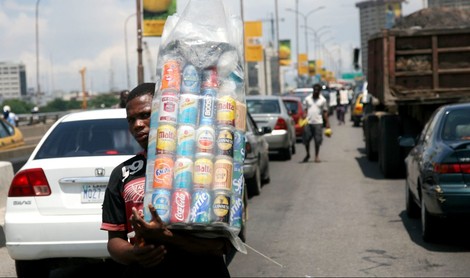Your podcast discovery platform
Curious minds select the most fascinating podcasts from around the world. Discover hand-piqd audio recommendations on your favorite topics.

piqer for: Global finds
Ciku Kimeria is a Kenyan author "Of goats and poisoned oranges" - (https://www.amazon.com/goats-poisoned-oranges-Ciku-Kimeria-ebook/dp/B00HBBWPI6), development consultant, adventurer and travel blogger (www.thekenyanexplorer.com). She writes both fiction and non-fiction focusing on African stories that need telling. She has worked on diverse pieces for various international and local publications including Quartz, Ozy, The East African etc. She has travelled to 45 countries – 16 of them in Africa. 153 countries to go and 63 territories!
"Of goats and poisoned oranges" has been extremely well received in Kenya and beyond. It tells the story of a Kenyan middle aged power couple and their complicated marriage. The novel explores issues of greed, revenge, betrayal and murder. It runs from the 1960s to 2013. It has been described as “Wicked, funny, poignant, wacky, human, a big ball of fun and danger”, “A unique and captivating book”, “Fun and intriguing”, “Impossible to put down once you start reading.”
She recently moved to Dakar, Senegal from Kenya to work on her second novel. She also works at as the Africa Communication Manager at a leading global strategy consulting firm.
She holds a B.S. in Management Science from MIT with minors in Urban Planning and International development studies.
Fake Processed Food Is Now Becoming A Health Hazard In African Cities
The rise in consumption in processed food on the continent has not always been met with the strengthening of the regulatory bodies that certify the safety standards of goods.
Recent research by the Confederation of Tanzania Industries estimates that over 50% of all goods, including food, drugs and construction materials, imported into Tanzania are fake. Anecdotal evidence suggests that rates could be between 10% and 50%, depending on the food category and the country.
Recent deaths in different cities after consumption of everyday goods is a cause for alarm. Markets have been flooded with counterfeit goods, and the buyer can no longer rely on supermarkets and open-air shelves to be a source of authentic goods.
In Ghana, the palm oil is laced with a food coloring called Sudan IV, which is widely recognized as a carcinogen. In Uganda, formalin—an embalming agent—is used to keep meat and fish free from flies and seemingly fresh for days. Across Africa, there are incidences of plastic rice or nothing more than discarded rice chaff, packaged as high-grade rice, and corn powder dyed with Sudan IV, labeled as chili pepper.
What makes the issue even more problematic is the fact that most of the fake goods are staples. Even if they will not cause immediate death, they will worsen what is already a malnutrition crisis and lead to higher incidents of cancer on the continent.
While some countries are already taking steps to address the issue, the reality is that certain regulatory bodies are ill-equipped to tackle the issue. Higher standards need to be set for food content and labeling, tracking and preventing counterfeit imported and local produced food. In addition to this, consumer education is needed to alert buyers to potential counterfeit goods and ingredients that should raise red flags.
Like the global war waged against counterfeit drugs, actions against food fraudsters must be bold, swift and unrelenting.
Stay up to date – with a newsletter from your channel on Global finds.
